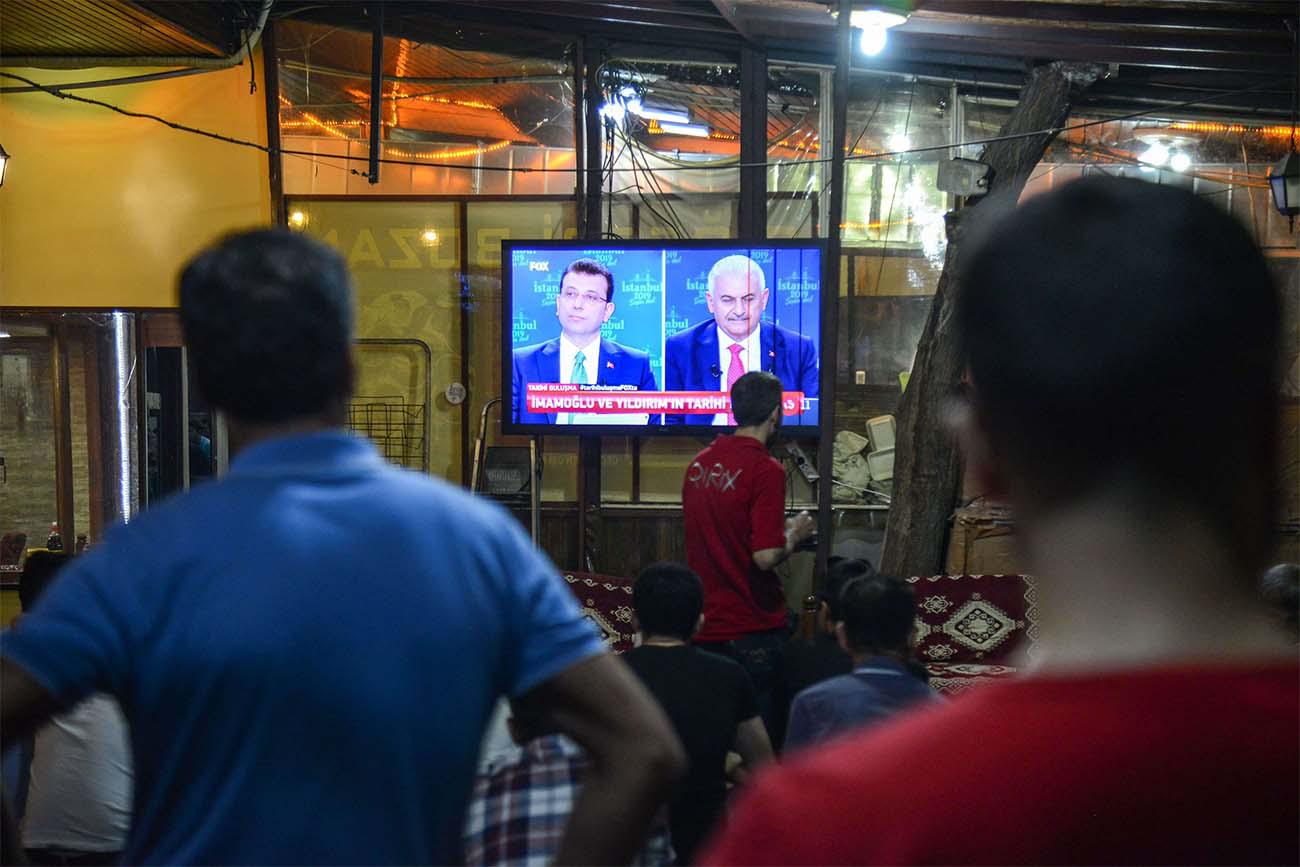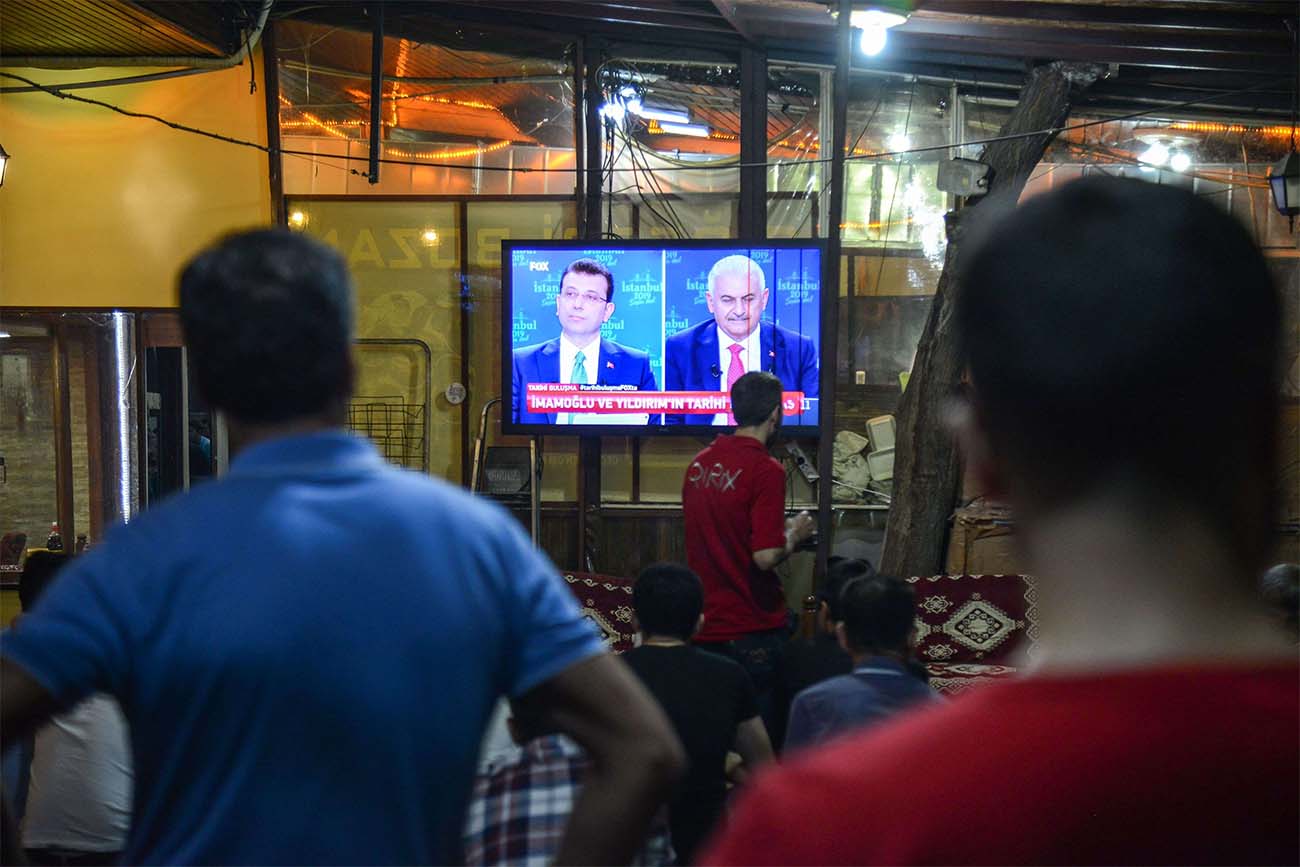What the Istanbul election could tell us
Most large cities are epicentres for liberalism and free thinking. With the battle for Istanbul in the balance of the June 23 mayoral election rerun, we can safely assume that Turkey’s largest city does not fit that pattern.
Istanbul stands out from other major world cities, such as London or New York, cities that are liberal hubs and that are likely to vote in a single, dependable pattern. That’s because major cities are home to people from different backgrounds and nationalities that mix and mingle together every day. Places such as Paris and Singapore have, for centuries, drawn people from all corners of the world. Because their residents are faced with this diversity, they, largely, are more accepting of different and differing views and traditions.
Istanbul’s diverse socio-political make-up means it is unique. Unlike many international cities that have seen the wealthy leave city centres for leafy suburban areas, both Istanbul’s suburbs and central districts are home to liberal and conservative voters alike.
Turkey’s largest city draws migrants from all corners of the country. It’s home to a large leftist community, conservatives of varying hues, anarchists and members of the far right. It is this fusion of political affiliations and small-town loyalties that make it such a hard place to nail down when it comes to predicting how individual districts will vote.
Despite the fact that it’s home to diverse groups of people and is surrounded by two seas, Istanbul does not have a population of foreigners comparable to other cities of its size (the number of foreign-born residents is believed to have been less than 100,000 people prior to 2007 and the waves of Syrian refugees that fled to the city after 2011) and so conservatism remains a strong worldview for millions of its residents.
Before Recep Tayyip Erdogan became mayor of Istanbul in the 1990s, the seat was occupied by centre-left politician Nurettin Sozen. It wasn’t until Erdogan held the post of mayor from 1994-98 that politically conservative, free market forces came to dominate the city. This unashamed piety and economic growth, particularly since the 2000s, fuelled the migration of poor and working-class Turks from the east, people with broadly conservative worldviews.
At the same time, Istanbul was and to an extent remains a bastion for the secular elite.
Districts such as Besiktas, Kadikoy and parts of its eastern and western fringes regularly post-election returns for the centre-left Republican People’s Party (CHP) and liberal candidates in the high 80 percentile range.
What’s changed in recent years is that the rising cost of housing has driven the sons and daughters of traditional secular voters to the suburbs where their votes have been diluted either by gerrymandering or a larger conservative population.
We’d be remiss not to mention the single most important factor behind the Justice and Development Party’s (AKP) almost three-decade rule of Istanbul: Its mayors modernised the city in dramatic ways, markedly improving the day-to-day lives of its residents.
Not all CHP voters are raving leftists and not all AKP followers are religious conservatives. Just because Erdogan crippled Turkey’s democratic institutions doesn’t mean that his opponents, the followers of CHP mayoral candidate Ekrem Imamoglu, are democratic purists.
What’s more, there are religious Kurds who broadly agree with the AKP’s worldview and secular Kurds who despise it. There are business owners who laud the AKP for developing sections of the city and there are those who hate it for mismanaging the terror threat that’s killed Istanbul’s international tourism industry.
Consequently, what happens during an Istanbul election campaign is unlike any other and, as such, it’s interesting to see the AKP shifting tactics by largely taking Erdogan’s face off the campaign.
It says more of how the AKP appears to be struggling even with the almost blanket support of the media, the president and whose candidate for mayor, Binali Yildirim, has, as minister for transportation, overseen some of the biggest infrastructural projects Istanbul has seen.
Regardless of who wins the vote, scholars, politicos and campaigners the world over would do well to study both sides’ election campaigns to understand what it takes to win tight urban races. How both sides canvas individual streets, neighbourhoods and districts that are more representative of small-town politicking that strict liberal/conservative lines will decide the victor on June 23.
Stephen Starr is an Irish journalist who lived in Syria from 2007 to 2012. He is the author of Revolt in Syria: Eye-Witness to the Uprising (Oxford University Press: 2012).
Copyright ©2019 The Arab Weekly







